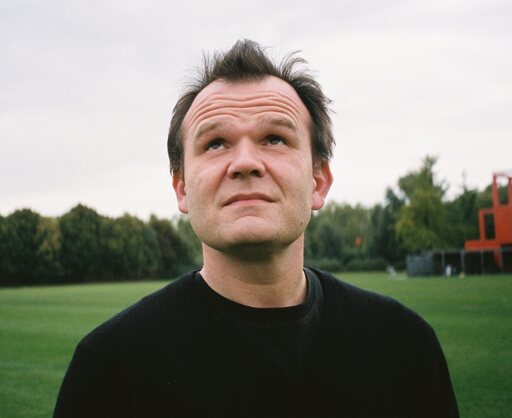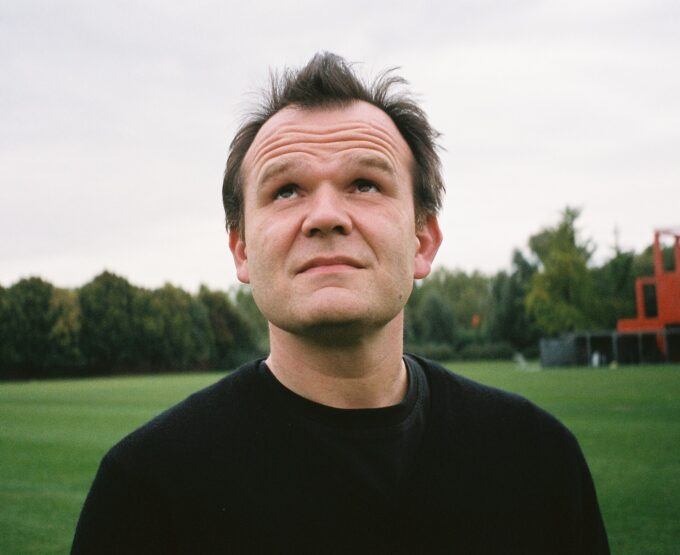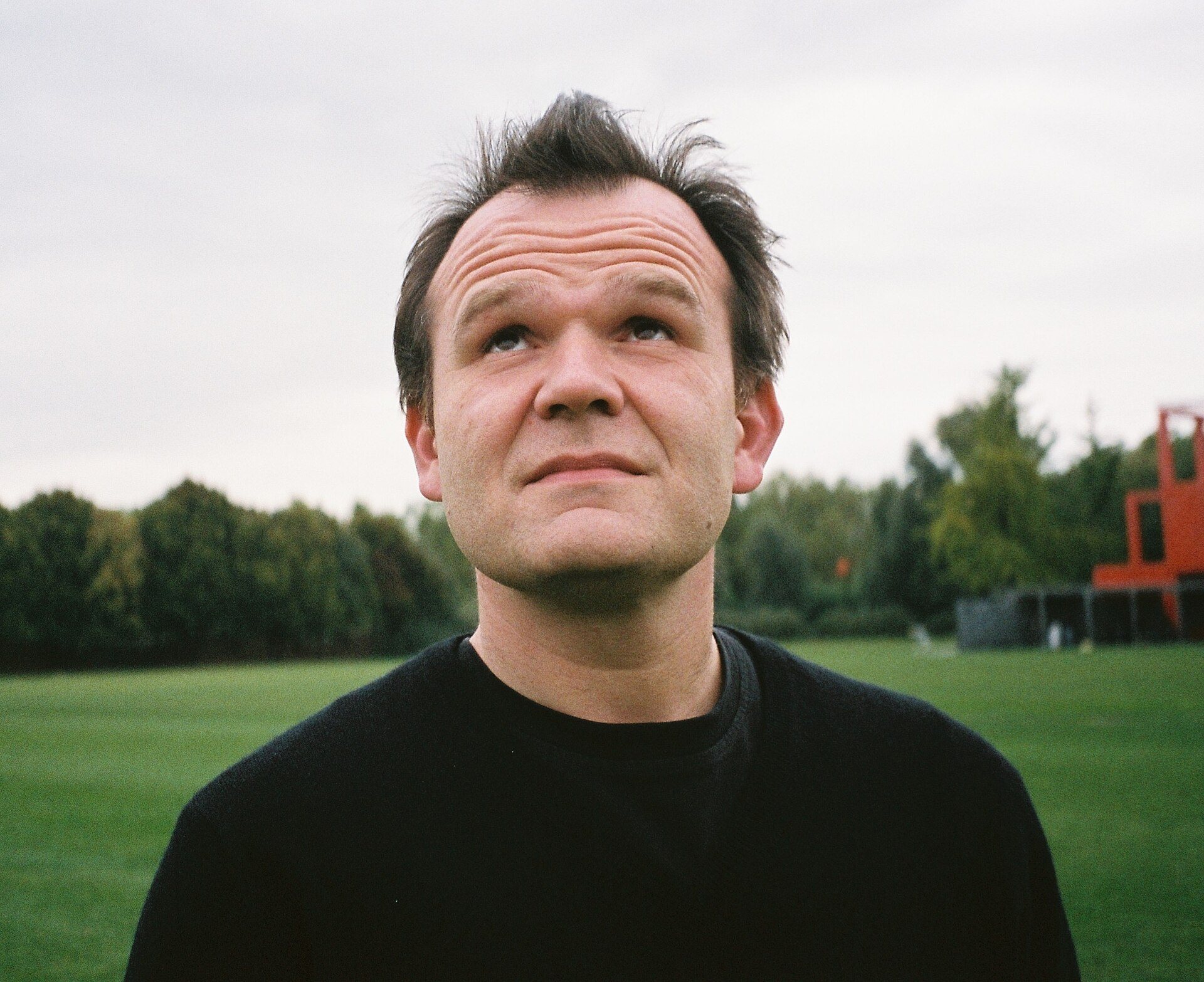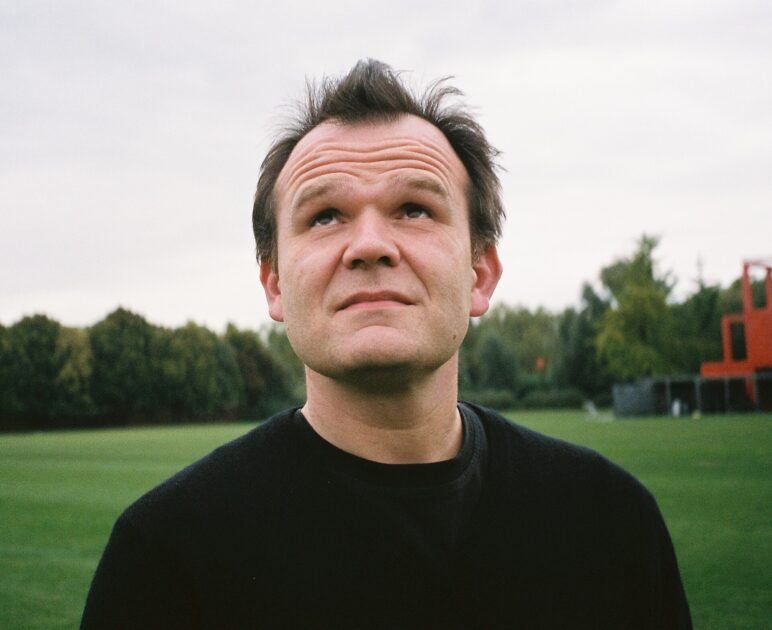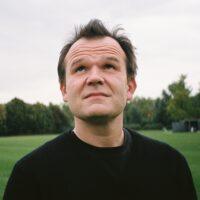François-Xavier Roth. Photo courtesy of Autorisation du bureau de François-Xavier Roth, ayant-droit de cette photographie. CC BY-SA 1.0
It’s a tough time to be a star conductor. When the world goes to hell, everyone wants to point the finger at the maestro—at the one whose job it is to point at others.
Last week, the Festival of Flanders in Belgium rescinded its invitation to the Munich Philharmonic because its music director, Lahav Shani, who also leads the Israel Philharmonic, did not “provide sufficient clarity about his attitude to the genocidal regime in Tel Aviv.” (The naming of that city, rather than Jerusalem, as Israel’s capital by the Ghent Festival was itself a statement.) Shani had succeeded Valery Gergiev, who was sacked by the German orchestra back in March of 2022, just a week after Russia’s invasion of Ukraine. Gergiev had amassed an international network of positions and guest invitations that included Munich, but quickly saw that empire crumble because he refused to sever ties with Vladimir Putin. As the Ukraine war rages on, the flak has not cleared around Gergiev, even if the inevitable haze of geopolitical amnesia might seem to begin to allow the Russian to slip through the European Union’s moral defense shield. Earlier this summer, an Italian festival partially funded by the EU revoked its invitation to Gergiev. No one in the so-called West rallied round the repelled conductor.
By contrast, the Germans have closed ranks resolutely around Shani, hired in Munich a year after Gergiev’s ouster. The German foreign minister quickly fired back flaming salvos at the Belgians, calling the cancellation “naked antisemitism and an attack on the basics of our culture.” Shani was called to the German President’s Berlin residence, the Schloss Bellevue, as a confirming gesture of the state’s unbending support. Such responses are to be expected in a country that last year introduced the requirement that those becoming naturalized German citizens must recognize Israel’s right to exist.
A one-time wunderkind now thirty-six years old, Shani has publicly declared his desire for resolution of the conflict in Gaza while continuing to lead the Israel Philharmonic. The orchestra’s appearance at the BBC Proms in late August was interrupted by protests.
Since being disinvited in Belgium, Shani has issued some generic comments about peace and reconciliation while expressing his dismay at being “unwillingly swept into an unexpected public storm that quickly escalated into a diplomatic incident.” The word “genocidal” used by the Belgium festival does not appear in Shani’s statement on the Munich Philharmonic website.
In counterpoint to these fortissimo ethical clashes resounding on a global scale are personal moral weaknesses heard in the courts of public opinion. A war can fell a conductor, as one did Gergiev, while charges of sexual harassment are more palatable to the cultural world’s moral appetites, and more easily digested by the media. Over the last decade, that has included Charles Dutoit getting turfed out at 81 by the Royal Philharmonic in London for allegedly assaulting several women over the course of his career; the long-time Metropolitan Opera chief James Levine forced to lay down his baton for propositioning boys; Daniele Gatti’s sacking from the Royal Concertgebouw Orchestra for allegedly making abundant use of the conducting couch. Gatti promised to focus on his “behavior” as he made his way out the door in Amsterdam to take up gigs elsewhere.
Latest to cause distaste is François-Xavier Roth, who founded Les Siècles in Paris in 2003 and under his leadership the orchestra quickly became a bracing disruptor in the world of historically informed performance by extending, just as its name advertised, a single ensemble’s temporal purview—and the specificity and breadth of the instruments played—across some five centuries.
But last year, Roth resigned from his orchestra amidst reports of sexting and charges of sexual harassment. When the story broke on May 22nd in the French magazine Le Canard enchaîné, Roth didn’t take the podium for his orchestra’s scheduled performance that same evening at the Théâtre des Champs-Élysées. He also left his post across the Rhine River in Cologne as director of the Gürzenich Orchestra and the city’s opera. Ss is so often the case, Roth offered his placatory statement in the subjunctive mode: “I apologize to all of those I could have hurt.” He then took a few months away from conducting. The criminal investigation into the harassment charges was suspended in December 2024. This month, Roth assumes his new position as music director of the SWR Orchestra in Stuttgart.
This past Friday, Roth conducted the famed Berlin Philharmonic in their home auditorium. The program began with Rituel in memorium Bruno Maderna by Pierre Boulez, whose works are being performed frequently during this bicentennial year of his birth. A dirge for the dedicatee, a close colleague who died suddenly in 1973 at the age of 53, the piece assembles eight varied groups of instruments ranging in size and sound, from a lone oboe to fourteen brass instruments and a fascinating palette of Asian percussion: tabla, temple bells, gongs. These clusters of timbral variety are meant by the composer to be spatially separated from one another. In the Berlin concert hall, the Philharmonie, with its many balconies and architectural planes encircling the stage, these colors, unmoored from tonality, conversed and sometimes clashed, met and mixed, mourned and recalled. This modernist reflection on and of mortality seems uncannily complex and simple at the same time. Berlioz’s professed indifference to emotion leads nonetheless to catharsis, not to escape from grief but a confrontation with it. The final sustained woodwind sonority receded to inaudibility against the faint knock of a bongo and the tolling of distant bells. The Philharmonie held its breath far into the void of silence that followed.
Next came world a premiere of an orchestral piece commissioned by the Berlin Philharmonic. Between Five Columns by Ondrej Adamek, who studied with and worked under the towering modernist, Boulez, sought to evoke architectural space, the malleability of impressions of buildings—their elements and interiors. The structure he created yielded moments of force and corners intimacy, but the elements often seemed unattached and isolated, yet also indistinct, like weathered post-modernist ruins.
A scandal-turned-classic closed the program: Stravinsky’s Rite of Spring. Roth is best known for the award-winning recording of this convulsive, revolutionary piece that he made in its centennial year using the original edition from the 1913 performance led by the composer at the Thêatre des Champs-Élysées, home to Roth’s former orchestra.
When not respectfully honoring Boulez’s score and its departed dedicatee, Roth was a lively presence on the podium. He signaled, flexed, expressed time and emotion with his virtuosic fingers, surprisingly clever elbows and supple shoulders. During the Stravinsky, he even danced and occasionally leapt.
Roth had shaved his head and wore tight black trousers cut well above his pointy patent leather shoes. His closely fitting tailcoat was minimalist, without vents or buttons, no carnation in the non-existent lapel, and nary a pocket that might hide a cellphone.
The effect of this funky take on the classic conductor’s rig was of a large elf or wizard—spritely, perhaps mischievous, but neither harassing nor malevolent. Under this magician, the Rite proceeded at a brisk, sometimes boiling pace, and one occasionally wondered whether the miraculous machine of the Berlin Philharmonic was too modern, too efficient, too perfect for Stravinsky’s outpouring of ersatz paganism.
As if to quell such doubts, concertmaster Dashin Kashimoto broke a string midway through, clear evidence that primal force had been applied. The violinist handed his instrument to a nearby colleague and charged back into the fray, barely missing a beat when he soon got his own axe back.
Some of the faithful gathered to revel in this marvelous liturgy of the concert hall might have asked themselves whether ballet music depicting the sacrifice of a maiden at the behest of elder pagan priests is the best calling card for a conductor back on the scene after unsavory revelations. If Roth keeps at Stravinsky’s Rite rather than Berlioz’s Rituel, he will need Time the Great Healer do some deep massage on his battered reputation after each performance.
Mr. Time did not respond to CounterPunch’s inquiries as to whether Lahav Shani had yet booked an appointment with Him.
The post Sic Transit Gloria Maestro appeared first on CounterPunch.org.
From CounterPunch.org via this RSS feed


